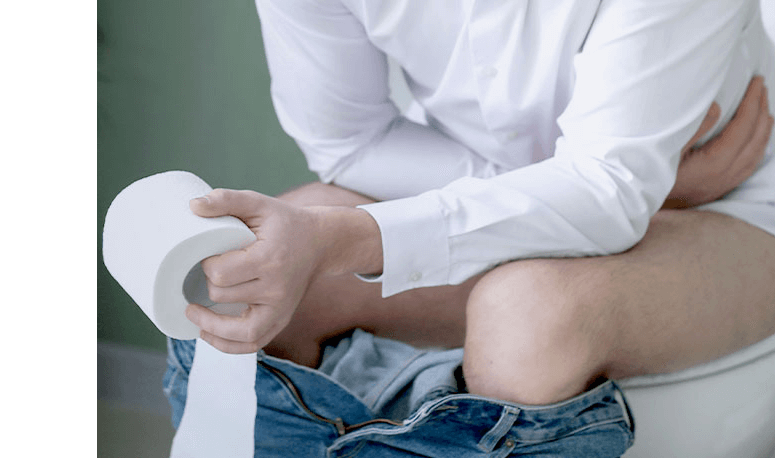What Is Rubber Band Ligation for Piles?
Why Is Rubber Band Ligation Done?
- Persistent piles symptoms that do not respond to conservative treatments, such as medications, topical creams, or dietary changes
- Piles that cause significant discomfort
- Recurrent or bleeding internal piles
Do I Need to Prepare for Haemorrhoids Rubber Band Ligation?
What Happens During Rubber Band Ligation?
The doctor inserts a flexible tube (anoscope) into the anal canal to provide a clear view of the haemorrhoids. Afterwards, a specialised instrument (ligator) is passed through the anoscope to place one or two small rubber bands around the base of the haemorrhoid to restrict blood flow.
Rubber band ligation usually takes only a few minutes to perform, although the procedure may take longer if multiple hemorrhoids need to be treated in one session.
What Is Recovery Like for the Rubber Band Ligation Procedure?
After the procedure, the haemorrhoids will dry up and fall off within 7–10 days, and the wound heals within a week or two. Patients often do not notice when treated haemorrhoids are expelled since they commonly occur during bowel movements.
Patients may experience mild discomfort or bloating, which typically subsides after a few days. Doctors may recommend pain medication to help alleviate these symptoms.
Are There Any Potential Risks After the Procedure?
- Infection in the anal region
- Fever or chills
- Excessive bleeding during bowel movement
- Inability to pass urine (urinary retention)
- Recurring haemorrhoids
What Is the Success Rate of Rubber Band Ligation?
FAQs
How soon can I use the toilet after haemorrhoid banding?

Do haemorrhoids recur after rubber band ligation?

How much does rubber band ligation cost in Singapore?

Can haemorrhoid banding fall off too soon?

What lifestyle changes should I make after the procedure?

Are there conditions that make rubber band ligation unsuitable?

Our Surgeons

Dr Dennis Koh
Medical Director & Senior Consultant Surgeon
B Med Sci (Nottingham), MBBS (Nottingham),
MMed (Surgery), FRCS (Edinburgh), FAMS
Dr Dennis Koh is an MOH-accredited and experienced colorectal surgeon who specialises in piles treatment and is currently the Medical Director at Colorectal Practice.
Dr Koh strives to provide a customized treatment plan for each patient, which allows for better outcomes. He also honed his skills in proctology abroad in Geneva, bringing a more diverse touch to his practice.

Dr Sharon Koh Zhiling
Senior Consultant Surgeon
MBBS (Singapore), MMed (Surgery),
FRCS (Edinburgh), FAMS
Dr Sharon Koh is an experienced colorectal surgeon and the former Director of Endoscopy at Alexandra Health.
Dr Koh completed her fellowship at Cedars-Sinai Medical Centre in the US after being awarded the Academic Medicine Development Award by the National University Hospital.

Dr Pauleon Tan Enjiu
Senior Consultant Surgeon
MBBS (Singapore), MMed (Surgery),
FRCS (Edinburgh), FACS
Dr Pauleon Tan has served in public hospitals for over 15 years and is experienced in minimally invasive surgery and endoscopy.
Dr Tan undertook advanced colorectal surgical training at Japan’s Saitama International Medical Center after being awarded the Ministry of Health – Health Manpower Development Plan (HMDP) Award.



